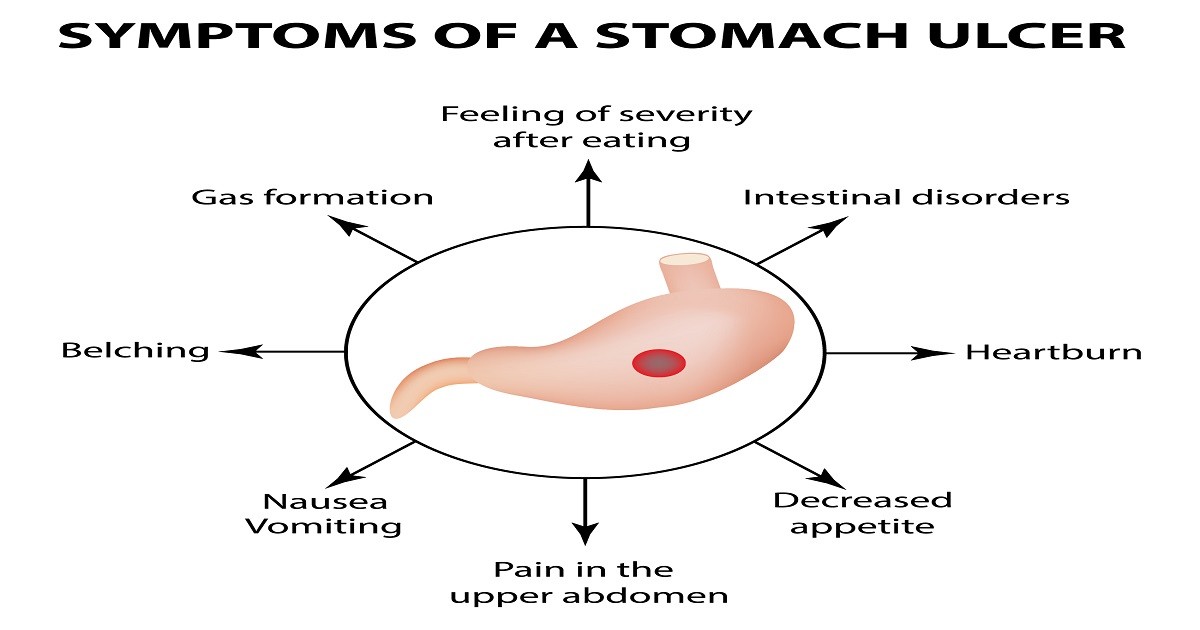
Stomach ulcers or peptic ulcers are open sores on the stomach's lining. These painful sores can cause a burning sensation, and discomfort in the upper abdomen, especially between meals and at night, and can disrupt your daily life.
Imagine planning a fun outing, only to be stopped by stomach pain. Ulcers can interfere with your ability to enjoy meals, concentrate at work, or even get a good night's sleep.
This blog aims to be your resource for understanding stomach ulcers. We'll explore causes, treatment options, remedies and recovery time needed for stomach ulcers.
We'll also discuss the potential benefits of Dipya Acidity Relief Tablets, a specially designed formulation that helps balance Pitta dosha, neutralize excess stomach acid, and relieve heartburn.
So let's get started with the causes and symptoms of this condition.
Causes of Stomach Ulcers
- Pylori infection: This bacteria can weaken the stomach lining, making it vulnerable to acid damage and leading to ulcers.
- NSAID drugs (Nonsteroidal anti-inflammatory): These medications, commonly used for pain relief like ibuprofen and aspirin, can irritate the stomach lining and increase the risk of ulcers, especially when taken long-term or on an empty stomach.
- Other factors: While less common, stress, smoking, excessive alcohol consumption, and certain medical conditions can also contribute to ulcer formation.
Symptoms of Stomach Ulcers

Here are some common signs:
- Burning pain in the upper belly, often between meals or during the night.
- Nausea and vomiting
- Loss of appetite or feeling full easily
- Burping or bloating
- Dark, bloody stools
Differentiating from Heartburn:
While both ulcers and heartburn cause discomfort in the upper abdomen, heartburn typically feels like a burning sensation behind the breastbone and is often triggered by specific foods or drinks.
Treatment Options for Stomach Ulcers
Thankfully, various stomach ulcer medications are available to address stomach ulcers, depending on the underlying cause and severity.
A. Conventional Treatment
- Proton Pump Inhibitors (PPIs): These medications reduce the production of stomach acid and this allows the ulcer to heal. Omeprazole, lansoprazole, and pantoprazole are common examples of PPIs.
- Pylori Eradication: If an H. pylori infection is present, antibiotic therapy is advised for eradication. Mostly antibiotics like amoxicillin, clarithromycin, and metronidazole are used.
- Lifestyle modifications: Dietary changes like avoiding spicy, acidic, and fatty foods, alcohol, and smoking can significantly aid healing and prevent recurrence. Also, stress management methods can be beneficial.
B. Ayurvedic Medicine for Stomach Ulcer
Ayurveda, a traditional Indian medical system, views stomach ulcers as an imbalance of the "Pitta dosha," which is associated with fire and digestion.
While consulting an Ayurvedic practitioner is crucial for personalized advice, some general approaches include:
- Focusing on natural ingredients like aloe vera, licorice root, and turmeric, which have anti-inflammatory and healing properties.
- Dietary recommendations aimed at balancing Pitta dosha, such as cooling and easily digestible foods like rice, vegetables, and dairy products.
Importance of Early Diagnosis and Treatment
Ignoring stomach ulcers can lead to serious complications like:
- Bleeding: Ulcers can bleed internally, causing dark, bloody stools or vomiting blood.
- Perforation: In extreme cases, the ulcer can create a hole in the stomach wall, requiring emergency surgery.
If you experience persistent abdominal discomfort or any of the mentioned symptoms, seek medical attention promptly. Early diagnosis can prevent complications and promote faster recovery.
Addressing the Myth of "Quick Cures":
While the internet may be flooded with claims of "quick cures" for stomach ulcers, it's crucial to understand that healing takes time and consistent effort. The average timeframe for a stomach ulcer to heal completely with proper treatment is 4-8 weeks. Remember, this is a healing process, and patience is key.
Introducing Dipya Acidity Relief Tablets
Dipya Acidity Relief Tablets aim to support overall stomach health. They combine the goodness of natural herbs like Yashtimadhu, Amla, Usheer, and Jeerak, known for their traditional uses in managing acidity.
Key Benefits:
- Neutralizes excess stomach acid: It can help alleviate heartburn and discomfort associated with acidity.
- Helps relieve heartburn: It may provide temporary relief from the burning sensation in the chest caused by acidity.
- Help prevent ulcer formation: The herbs in these tablets have properties that contribute to a healthy stomach environment, aiding in preventing ulcer formation.
Note: You can also consult the Ayurveda doctors at Vedistry for free before using Dipya Acidity Relief tablets to prevent ulcers. They’ll give the best course of action based on your health history.
So to conclude while stomach ulcers can impact daily life, understanding the causes, symptoms, and remedies allows for proactive management. While Dipya Acidity Relief Tablets offer some relief from heartburn and discomfort, it's important to consult a healthcare professional for a personalized treatment plan. Consider utilizing the free consultation with the Ayurveda doctors at Vedistry before starting Dipya Acidity Relief tablets for better guidance and faster recovery.